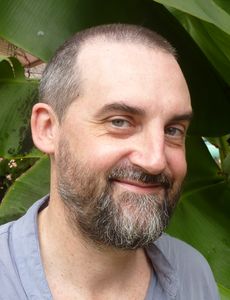Seminars on Religion, Pluralism and Civil Enculturation
 Elizabeth M. Bucar
Elizabeth M. Bucar
Elizabeth Bucar spoke at CURA on April 6, 2015 on “Pious Fashion: Women’s Ethical Negotiations of Aesthetic Authorities of Tehran”. She works within the Islamic and Christian traditions on issues of gender, politics, and emergent technologies (new media and medical advances). Her books include Does Human Rights Need God? Co-edited with Barbra Barnett (Eerdmans, 2005), Creative Conformity: The Feminist Politics of U.S. Catholic and Iranian Shi’I Women (Georgetown University Press, 2011), and The Islamic Veil: A Beginner’s Guide (Oneworld Publications, 2012).
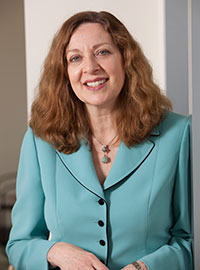 Marcia C. Inhorn, PhD, MPH
Marcia C. Inhorn, PhD, MPH
Marcia C. Inhorn is the William K. Lanman Jr., Professor of Anthropology and International Affairs in the Department of Anthropology and The Whitney and Betty MacMillan Center for International and Area Studies at Yale University. She is the current and founding editor of the Journal of Middle East Women’s Studies (JMEWS) and has served as director of the Council on Middle East Studies at Yale (2008-2011) and the Center for Middle Eastern and North African Studies at the University of Michigan (2004-2006). A specialist on Middle Eastern gender and health issues, Inhorn has conducted research on the social impact of infertility and assisted reproductive technologies in Egypt, Lebanon, the United Arab Emirates, and Arab America over the past 25 years. Inhorn spoke at CURA on “The New Arab Man: Emergent Masculinities, Technologies, and Islam in the Middle East” on March 30, 2015.
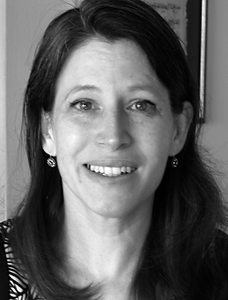 Marion Holmes Katz
Marion Holmes Katz
Marion Holmes Katz spoke at CURA on March 16, 2015 on “Crones, Slaves and the Caliph’s Daughter: The Complexities of Gender in the Pre-Modern Legal Texts”. She is a Professor of Middle Eastern and Islamic Studies at New York University. Her research focuses on pre-modern Islamic law, gender, and ritual. She is the author of books including Body of Text: The Emergence of the Sunni Law of Ritual Purity (2002) and Women in the Mosque: A History of Legal Thought and Social Practice (2014).
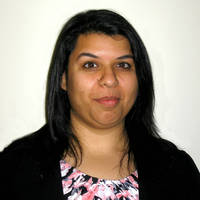 Saadia Yacoob
Saadia Yacoob
Saadia Yacoob is a PhD candidate in the Department of Religion at Duke University. She received her B.A. in Legal Studies from American University and a M.A. in Islamic Studies from McGill University. Her research interests include the history of Islamic law and Muslim feminist studies. Yacoob spoke at CURA on “Marriage to Minor Girls: Intercourse, desire, and the female body in Islamic Law” on February 23, 2015.
 Karrie J. Koesel
Karrie J. Koesel
Karrie J. Koesel is an Assistant Professor of Political Science at the University of Oregon where she specializes in the study of contemporary Chinese and Russian politics, authoritarianism, and religion and politics. She is the author of Religion and Authoritarianism: Cooperation, Conflict and the Consequences (Cambridge University Press, 2014), and her work has appeared in Perspectives on Politics, The China Quarterly, and Post-Soviet Affairs. Koesel spoke on “Religion and the State: Cooperation and Conflict in Russia and China” on February 20, 2015.
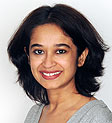 Rochana Bajpai
Rochana Bajpai
Dr. Rochana Bajpai is Senior Lecturer (Associate Professor) in the Department of Politics at SOAS University of London. Her work has largely centered on India, and examined the politics of religion and caste with reference to constitutional and policy debates. Bajpai’s current research funded by a Leverhulme Research Fellowship (2013-15), explores the theory and practice of political representation with particular reference to minority representation in Indian Parliament. She has also written on comparative affirmative action, with a focus on policy debates in India and Malaysia, as well as approaches to comparative political thought. Bajpai spoke at CURA on February 13, 2015 on the subject of “Multiculturalism in India”.
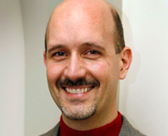 Brian Howell
Brian Howell
Dr. Howell is one of the most respected American researchers in the anthropology of Christianity today. He teaches on global Christianity, culture theory, and inequality, as well as on anthropology and popular culture. His research interests are in the intersections of culture, globalization and Christianity. Dr. Howell’s books include Introduction to Cultural Anthropology: A Christian Perspective (Baker Academic, 2011), and Christianity in the Local Context: Southern Baptist in the Philippines (Palgrave Macmillan, 2008). Dr. Howell spoke at CURA on “The Anthropology of Christianity: A Brief Report on the State of the Field”.
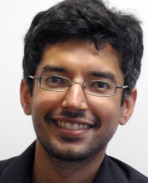 Kabir Tambar
Kabir Tambar
Kabir Tambar is an assistant professor in the Department of Anthropology at Stanford University. He spoke at CURA on October 22, 2014 in a talk entitled “Beyond the Minority Question: Founding Violence and Popular Soverignty in Turkey.” He has also taught in the Department of Religion at the University of Vermont and was a member in the School of Social Sciences at the Institute for Advanced Study in Princeton in 2011-2012. His work has largely centered on Turkey and has explored questions of citizenship, religion, and the politics of history.
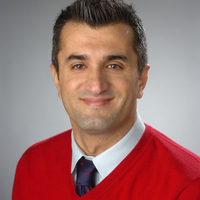 Yüksel Sezgin
Yüksel Sezgin
Yüksel Sezgin is the director of the Middle East Studies Program and an assistant professor of political science at Maxwell School of Public Affairs, Syracuse University. He is the author of Human Rights under State-Enforced Religious Family Laws in Israel, Egypt and India (Cambridge University Press, 2013) which awarded the 2014 Gordon Hirabayashi Human Rights Book Prize by American Sociological Association. Sezgin spoke at CURA on November 14, 2014 on “Democratizing Shari’a: The Regulation and Application of Muslim Family Leave Laws in Israel.
R. Michael Feener is Research Leader of the Religion and Globalization Research Cluster at the Asia Research Institute, and Associate Professor in the Department of History at the National University of Singapore. Previously he taught at Reed College and the University of California, Riverside. He has also held visiting professor positions and research fellowships at Kyoto University, École des Hautes Études en Sciences Sociales (Paris), the University of Copenhagen (Denmark), The Doris Duke Foundation for Islamic Art (Honolulu), and the International Institute for Asian Studies (IIAS) in Leiden, the Netherlands. This year, he is visiting Associate Professor in the Prince Alwaleed Bin Talal Islamic Studies Program at Harvard University. His books include: Muslim Legal Thought in Modern Indonesia (Cambridge University Press, 2007), and Shari’a and Social Engineering: The Implementation of Islamic Law in Contemporary Aceh, Indonesia (Oxford University Press, 2013).
 John. R. Bowen
John. R. Bowen
John R. Bowen is one of the most distinguished and celebrated anthropologists of religion and particularly of Islam. He is Professor in Arts & Sciences at Washington University in St. Louis, and recurrent Visiting Professor at the London School of Economics. He has been studying Islam and society in Indonesia since the late 1970s, and since 2001 has worked in France, England, and North America on problems of pluralism, law, and religion, and in particular on contemporary efforts to rethink Islamic norms and civil law. He spoke at CURA on “How Liberal can France be? Islam, politics and public order”.
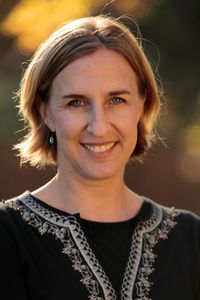 Elizabeth Shakman Hurd
Elizabeth Shakman Hurd
Elizabeth Shakman Hurd is Associate Professor of Political Science at Northwestern University with a courtesy appointment in Religious Studies. She spoke at CURA on Thursday, April 10, 2014. Shakman Hurd is interested in religion, power, and politics, and particularly the ways in which the study of contemporary religion offers insights into current dilemmas involving difference, governance, power, law, and pluralism. Hurd is the author of The Politics of Secularism in International Relations, co-editor of Comparative Secularisms in a Global Age, and co-organizer of the Luce-funded collaborative research project, “The Politics of Religious Freedom: Contested Norms and Local Practices.” Her talk was on “International Religious Freedom and the Politics of Religious Difference”.
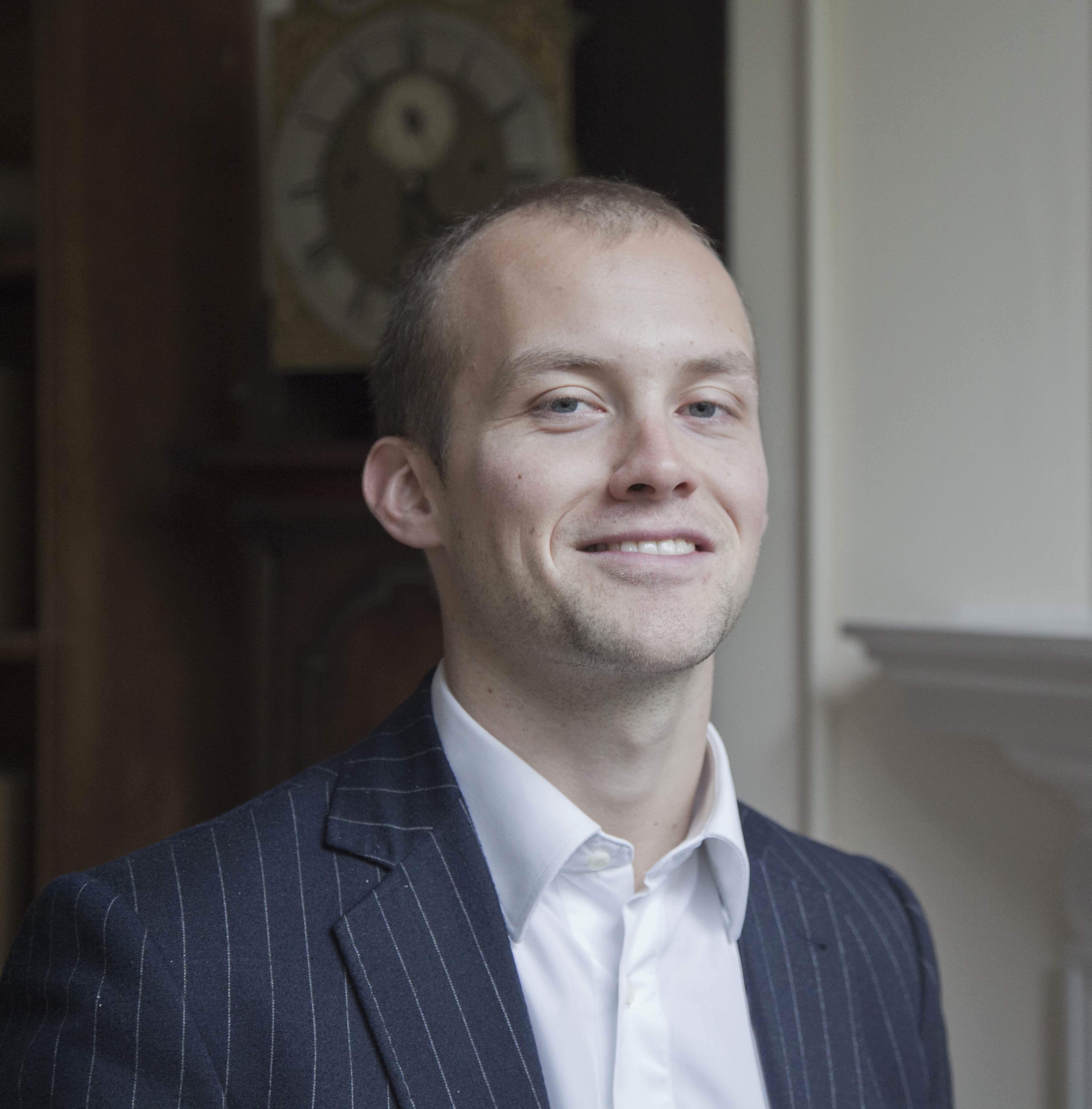 Toby Matthiesen
Toby Matthiesen
Toby Matthiesen is a research fellow in Islamic and Middle Eastern Studies at Pembroke College, University of Cambridge. On March 20, 2014, Toby spoke at CURA on “Sectarianism in the Middle East”. In 2013, he was also a Research Fellow at the London School of Economics and Political Science. He is the author of “Sectarian Gulf: Bahrain, Saudi Arabia, and the Arab Spring That Wasn’t”.
 Paul Freston
Paul Freston
Paul Freston is Professor and Chair of Religion and Politics in the Global Context at Wilfred Laurier University. He spoke on March 3, 2014 on “Pentecostalism and Politics in Brazil: An Emerging Player in an Emerging Power”. Paul is a sociologist of religion, and one of the world’s most celebrated and accomplished scholars on Latin American religions, global Evangelicalism, and Christian-based politics. He is the CIGI Chair in Religion and Politics in Global Context at the Balsillie School of International Affairs and Wilfrid Laurier University. He is also professor of sociology on the post-graduate program in social science at the Universidade Federal de São Carlos, Brazil. His research has focused on, among other things, religion and democratization, the growth of Pentecostalism in the global south, and questions of religion and globalization.
Daniel Philpott
Daniel Philpott, Ph.D. Harvard, 1996, spoke at CURA on January 30, 2014 on “Reconiciliation in Politics: How Religion is Reshaping the Global Conversation on Justice”. He pursues interests in international relations, political philosophy, and peace studies. Philpott also directs a research program on religion and reconciliation at the Kroc Institute.
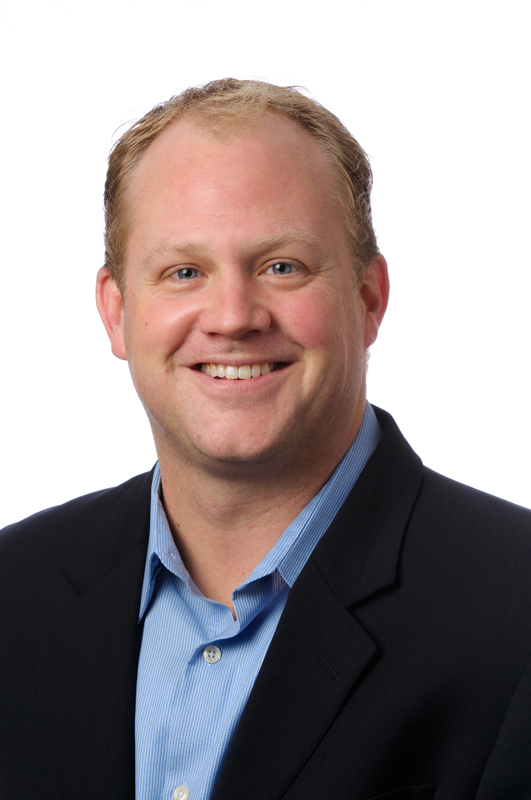 James Hoesterey
James Hoesterey
James Hoesterey, Assistant Professor of Department of Religion of Emory University spoke on Friday, December 6 at CURA. His talk was entitled “Shaming the State: Subjectivity and Islamic Ethics in Indonesia’s Pornography Debate”.Dr. Hoesterey’s research focuses on popular Islam, religious authority, Muslim subjectivity, and public piety in post authoritarian Indonesia. His current book project “Sufis and Self-help Gurus: Popular Islam and the Cultural Politics of Public Piety” tells the story of the rise and fall of Indonesia’s most famous television preacher.
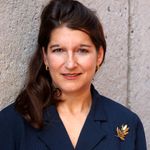 Carrie Rosefsky Wickham
Carrie Rosefsky Wickham
Carrie Rosefsky Wickham, Associate Professor of Political Science at Emory University and the author of some of the most important works on Muslim politics and Islamist movements over the past ten years spoke on “The Muslim Brotherhood: Evolution of an Islamist Movement” on Wednesday, October 16, 2013.

Michael Lambek
On Thursday, October 10, 2013 Michael Lambek, Professor of Anthropology & Canada Research Chair at the University of Toronto spoke “On the Immanence of Ethics”. He has been carrying out research in the Western Indian Ocean since 1975 and is the author of three monographs and editor of several collections, including Ordinary Ethics (Fordham University Press 2010) and most recently, A Companion to the Anthropology of Religion (with Janice Boddy, Wiley Blackwell 2013).
Marie-Claire Foblets
On Tuesday, March 19, 2013 Marie-Claire Foblets, Director of the Department of Law and Anthropology at the Max Planck Institute for Social Anthropology, gave a lecture entitled “The Challenges of Religious Pluralism in a Changing Europe: Draft Summary of the Main Finding of the RELIGARE Project”. For more than twenty years Marie-Claire Foblets taught social and cultural anthropology in the universities of Antwerp and Brussels. Before becoming a member of the Max Planck Society in March 2012, she was ordinary professor at the Catholic University of Leuven, where she headed the Institute for Migration Law and Legal Anthropology. Professor Foblets has been or is a member of various networks of researchers, focusing either on the study of the application of Islamic law in Europe, or on law and migration in Europe, including the Association Française d’Anthropologie du droit (AFAD), of which she served as co-president for several years.

Rachelle Scott
On Thursday, February 14, 2013 Rachelle Scott, Associate Professor at the University of Tennessee, Knoxville, gave a lecture entitled “Beautiful Bodies, Prosperous Lives and Global Identities: The Rise of New Goddess Cults in Thailand”. Rachelle Scott studies the history of Theravada Buddhism in South and Southeast Asia, with an emphasis on contemporary Buddhism in Thailand. Her first book, Nirvana for Sale?: Buddhism, Wealth, and the Dhammakāya Temple, examined contemporary debates over monastic and lay wealth in Thailand.
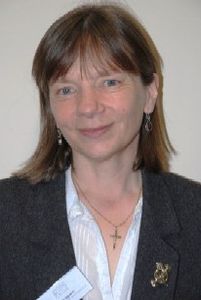
Julia Ipgrave
On Thursday, October 11, 2012 Julia Ipgrave, Senior Research Fellow at the University of Warwick Religions and Education Research Unit, gave a lecture entitled “From Multiculturalism to Securitization: Educational Responses to British Islam.”
 Ruth Marshall
Ruth Marshall
On Thursday, September 20, 2012 Ruth Marshall, Assistant Professor in the Departments of Religion and Political Science, gave a lecture entitled “Wars and Rumors of Wars: The New Politics of Religious Witness in Nigeria.”
Thomas Blom Hansen
On Tuesday, December 6, 2011 Thomas Hansen, Director of Stanford University’s Center for South Asia and Professor of Anthropology, gave a lecture entitled “Politics by All Means: Violence and Democracy in India.”

Scott Appleby
On Tuesday, October 18, 2011 Scott Appleby, Director of the Kroc Institute for Peace Studies and Professor of History at the University of Notre Dame, gave a lecture entitled “One Modern World for All? The View from the Vatican, with Commentary from Cairo, Tehran, and New York.”
 Alfred Stepan
Alfred Stepan
On Tuesday, October 11, 2011 Alfred Stepan, Director of the Center for the Study of Democracy, Tolerance, and Religion at Columbia University, gave a lecture entitled “Transcending Deep Religious Diversity: Democratic Accomplishments in India and Possibilities in Tunisia”. A world-renowned political theorist of democracy, democratic transitions, and pluralist citizenship, Stepan spoke on a subject at the heart of his new book, Crafting State Nations: India and other Multinational Democracies (Johns Hopkins University Press, 2011).
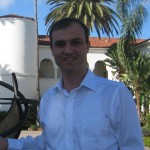 Ahmet T. Kuru
Ahmet T. Kuru
On Tuesday, September 27, 2011, Ahmet T. Kuru, assistant professor of politcal science at San Diego State University gave a lecture entitled “Secular States and Religions: Comparing the United States, France, and Turkey.”
Suzanne Last Stone
On Tuesday November 30, 2010, Suzanne Last Stone, from Yeshiva University, spoke on “Rabbinic Conceptions of Civil Society: Problems and Possibilities’”. Click the link below to view the PDF of Suzanne Stone’s publication.
 Anver Emon
Anver Emon
On Thursday October 28, 2010, Anver Emon, from the University of Toronto, spoke on “Tolerance, Governance, and the Islamic ‘Other’” as part of the on going seminar series. Click the link below to view the PDF of Anver Emon’s publication.
